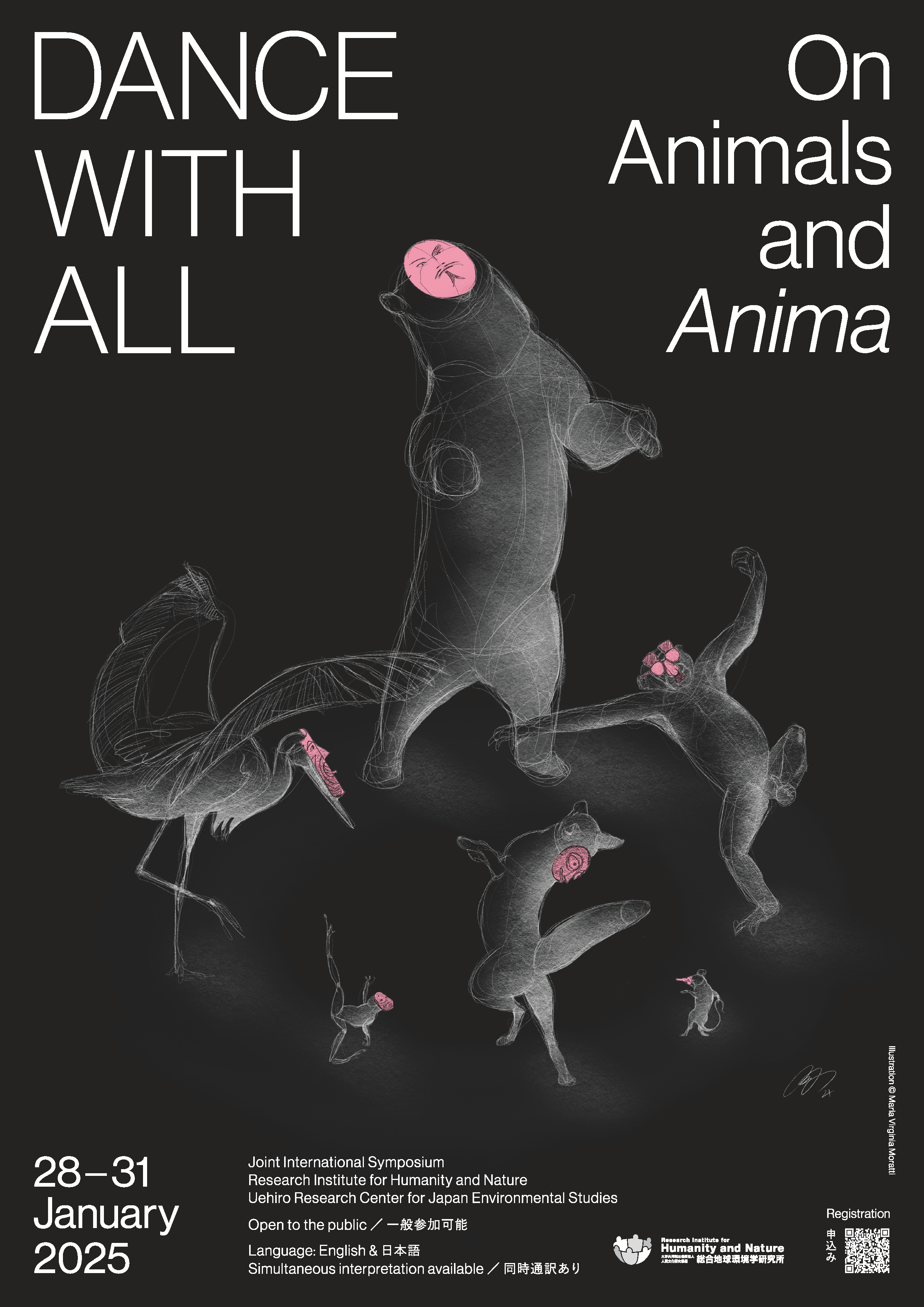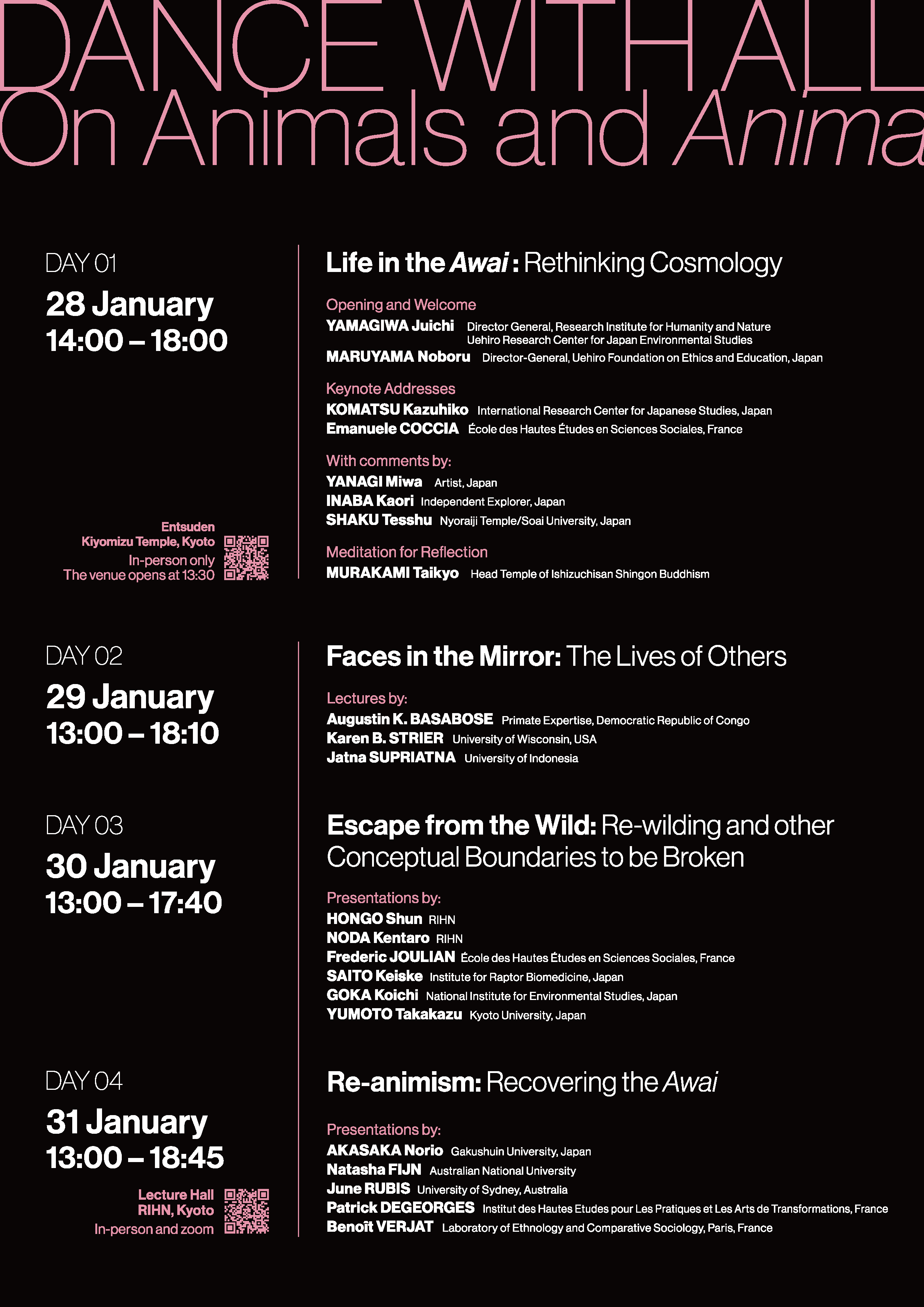Joint International Symposium of the Research Institute for Humanity and Nature & Uehiro Environmental Japan Studies Center
DANCE WITH ALL on Animals and Anima
What does it mean to be wild?
In science, animals have usually been described as ‘pure nature’. As organisms, populations, and species they are said to behave according to biological laws, rather than to any rules of their own creation. Recently, animals are described as agents within multi-species ‘entanglements’. In this view, animals participate in complex ecologies, but their agency remains instrumental and their interior experience remote. To the rational mind, animals may take good care of their young, create remarkable structures, collaborate with other animals, or migrate across hemispheres, but they cannot know why.
At the same time, animals have long been seen as close human companions with whom we share much common experience. We depend on them for food and information about the world around. We admire the vastness of their sensory worlds and their ability to negotiate realms we can only sense from afar. Within those realms, which overlap with ours, animals regain their subjectivity—they are often perceived as ‘people’ different from us, with their own preferences, ethics, aesthetics, and so on. Where they still roam freely, they often cross between the human and non-human realms seamlessly, acting as signals or messengers from the beyond. This capacity affirms what could be called the ethics of animism: the intrinsic significance of a single continuous relational field, a dance with all.
Such ideas of continuity may seem antiquated today, as humankind has become a pervasive force throughout nature. Recently, however, ideas of the wild and rewilding have returned with great potency. The practice of re-wilding, originally a technique for ecosystem restoration of overly humanized landscapes, invites the wild back into territories and communities from which it had been banished. And with the wild comes something of the unknown, ranging freely, that has proven very provocative to culture, ethics, law and philosophy.
This symposium asks of animals and animisms today: animals as thinking, feeling, creative beings, and of our human relationships to them as such. It asks of the collective beliefs and practices that can encompass—or have already encompassed—animal thoughts, perceptions, and even animal ethics. What do such perceptions mean to animals, to the human strategies for animal conservation, to science and its relationships to nature, and to our ever-wild selves?
- Date and Time
- Tuesday, January 28, 2025 – Friday, January 31, 2025
- Venue
- – January 28, 2025 (Tuesday): Kiyomizu-dera Temple, En-tsu Hall
– January 29 (Wednesday) – January 31 (Friday): Lecture Hall, Research Institute for Humanity and Nature - Participation
- – Online participation registration (available only for Day 2, 3, and 4)
Reigster
– If you wish to participate in person on Day 2, 3, or 4, please contact the inquiry office directly.
– Participation on Day 1 is by invitation only. Thank you for your understanding. - Program
- For detailed program information, please refer to the link below.
- Language
- English & Japanese (simultaneous interpretation available)
- Contact
- International Exchange Office, Research Institute for Humanity and Nature
Email: kokusai[at]chikyu.ac.jp
*Please replace [at] with @.
このページは次の言語で読めます: 日本語 (Japanese)


